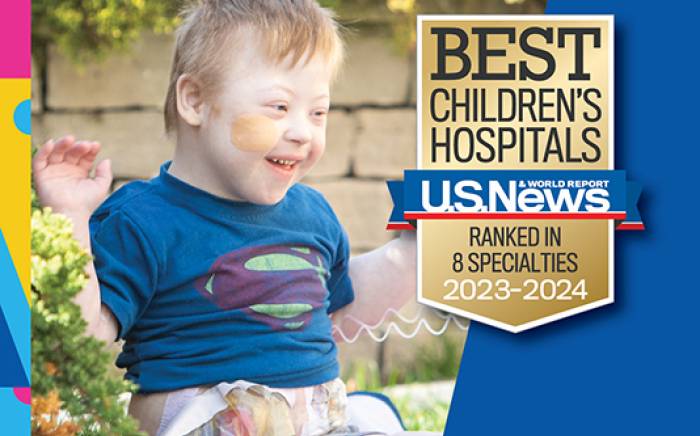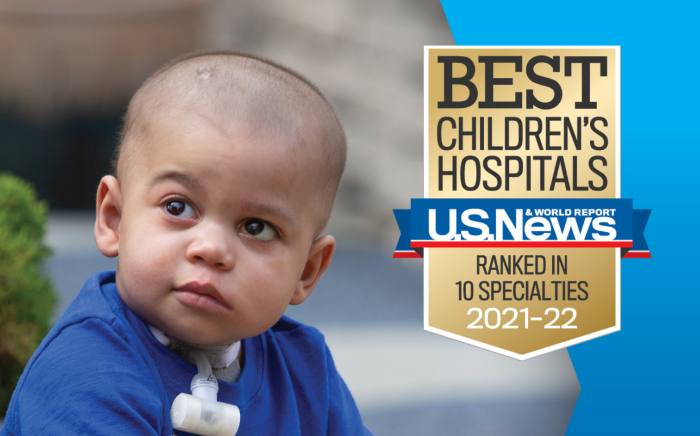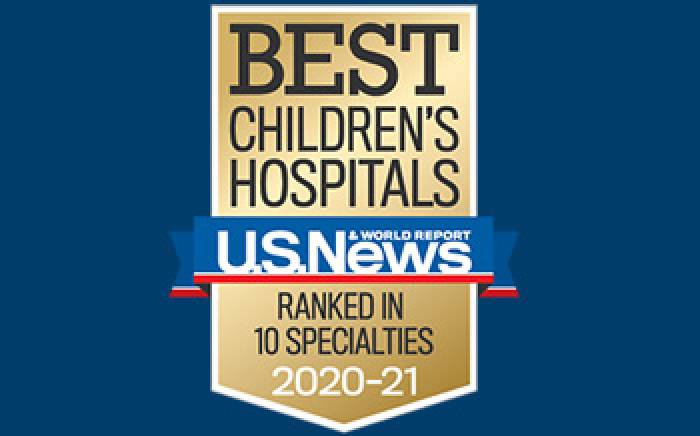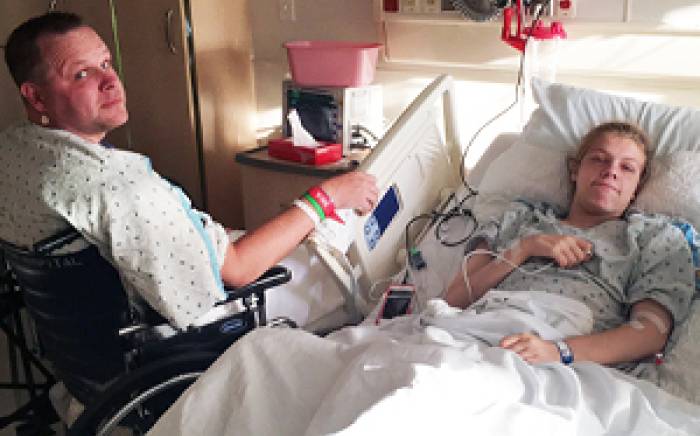 The Washington University Hyperinsulinism Center at St. Louis Children’s Hospital is one of the few centers in the country to offer multidisciplinary and comprehensive evaluation, diagnosis, treatment and follow-up care for children with congenital hyperinsulinism. It is also the only center in the Midwest, and one of only five in the country, with the capability to perform the specialized fluorodopa positron emission tomography (18F-DOPA PET) scans often required during the diagnostic evaluation of these patients.
The Washington University Hyperinsulinism Center at St. Louis Children’s Hospital is one of the few centers in the country to offer multidisciplinary and comprehensive evaluation, diagnosis, treatment and follow-up care for children with congenital hyperinsulinism. It is also the only center in the Midwest, and one of only five in the country, with the capability to perform the specialized fluorodopa positron emission tomography (18F-DOPA PET) scans often required during the diagnostic evaluation of these patients.
Occurring in approximately one in 30,000 births nationally, these genetic disorders cause the insulin-producing cells of the pancreas to over secrete insulin. In turn, the excess insulin causes hypoglycemia that, if left untreated, can lead to seizures, brain damage, developmental delay and possible death. Thus, early identification and management of hyperinsulinism are critical to improve patient outcomes.
“The two most common forms of congenital hyperinsulinism are either diffuse or focal,” says Washington University pediatric endocrinologist Neil White, MD, MSCI. “Although some infants with diffuse disease may be managed medically, more than 50 percent need to undergo a 95 percent pancreatectomy. This leaves them at risk for eventually developing diabetes. For focal disease, however, just the affected portion of the pancreas needs to be excised, which in the majority of cases results in a complete cure.”
Because of the rarity and complexity of this disorder, each patient and family is unique. Key to treatment and diagnosis is having a dedicated pediatric hospital and team of health care professionals with a distinctive interest and expertise that can provide an integrated, evidence-based approach to the care of these children with state-of-the-art clinical and diagnostic tools.
“While some pediatric centers may see just one or two of these cases a year, our patient population is larger because of our proximity to the Mennonite community in southwest Missouri, which has a higher prevalence of this disorder among its members,” says Jennifer Iklé, MD, PhD, pediatric fellow at Washington University. “In addition, St. Louis Children’s Hospital has a world-class level IV newborn intensive care unit that provides care for some of the most critically ill babies in the Midwest region.” 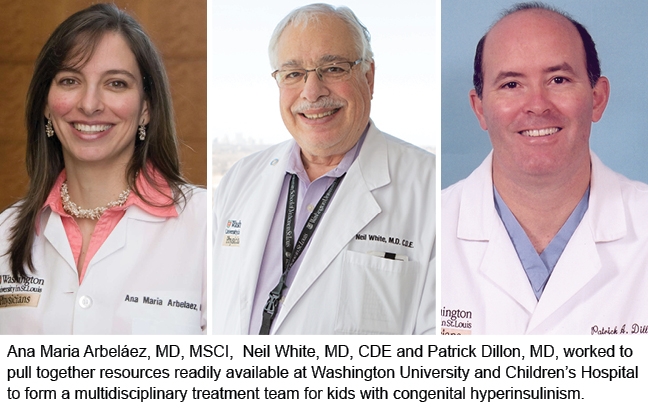
In order to establish the Washington University Congenital Hyperinsulinism Program, Ana Maria Arbeláez, MD, MSCI, division chief of pediatric endocrinology and diabetes; Patrick Dillon, MD, Washington University pediatric surgeon; and Dr. White worked to pull together resources readily available at Washington University and Children’s Hospital. The program comprises a multidisciplinary team that includes pediatric endocrinologists, surgeons, radiologists, pathologists, anesthesiologists, neurologists, gastroenterologists, nurses, social workers, researchers, speech and feeding therapists, and dieticians. Geneticists analyze the genes associated with hyperinsulinism to determine if the hypoglycemia is more likely to be associated with diffuse or focal disease. Radiologists perform the 18F-DOPA PET with magnetic resonance imaging to identify the location of focal lesions. Surgeons remove a portion of or the entire pancreas depending on the genetic, radiologic and pathologic findings. Pathologists confirm the presence of focal lesions. Neonatologists in conjunction with the endocrinologists care for the infants throughout their treatment.
“We are the first institution to combine 18F-DOPA PET imaging with MRI, which enables less radiation exposure and clearer images and may prove to better localize the region in focal cases,” says Dr. White. “In addition, with our state-of-the-art cyclotron facility, our nuclear medicine radiologists have access to an FDA-approved, in-house manufactured and improved isotope.”
With two to three dozen patients currently under care—a number likely to increase because of the new Hyperinsulinism Center—patients will be followed long term in order to track outcomes and improve management of patients with this disease.
“Our main goal is to offer the very best care for families and patients with congenital hyperinsulinism at a location close to home,” says Dr. White.
Patients may be referred to the program for evaluation and management if they have confirmed hyperinsulinism and are not responding to medical therapy with diazoxide by calling the main endocrine line, 314.454.6051. Assistance may be given for patients’ transfer to the single-bed NICU, insurance pre-certification, and lodging for family members.



